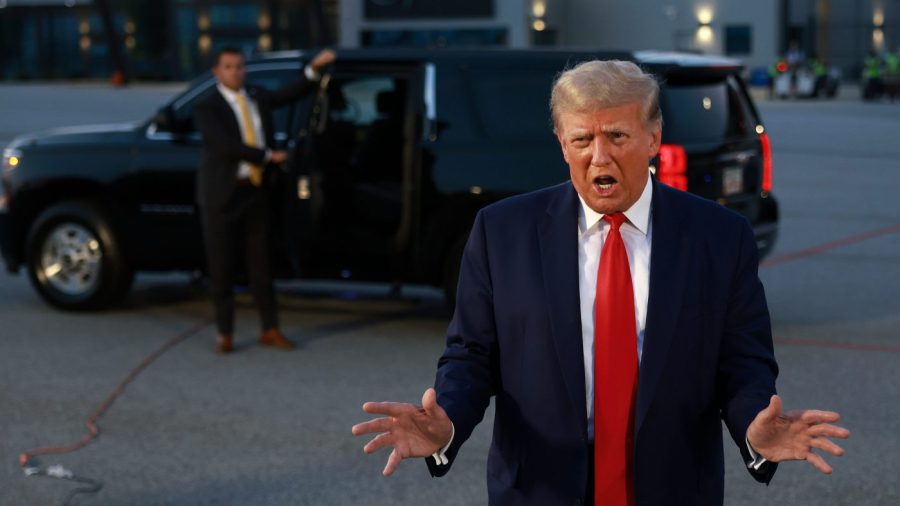Trump fires back at WSJ editorial, argues his tariff policies were a success
Former President Trump argued Wednesday that his administration’s tariff policies were a success, after The Wall Street Journal’s editorial board warned against the 10 percent tariff the former president proposed on the campaign trail.
“Even after being proven spectacularly and totally wrong in all their past predictions regarding my historically successful trade policies, the die-hard globalists at the editorial board still have not learned their lesson,” Trump said in an op-ed in The Wall Street Journal.
The former president, who currently holds a sizable lead over the rest of the Republican candidates vying for the 2024 GOP presidential nomination, has proposed implementing a 10 percent tariff on all foreign imports into America.
“No. 1, I think we should have a ring around the collar, as they say,” Trump said in a recent interview with Fox Business Network host and former Trump White House adviser Larry Kudlow.
“I think, when companies come in and they dump their products in the United States, they should pay automatically, let’s say, a 10 percent tax,” he continued.
Top Stories from The Hill
- First Proud Boy sentenced to 17 years in prison after seditious conspiracy conviction
- Trump in deposition says he averted ‘nuclear holocaust’
- Ukraine breaks through major Russian defense lines as counteroffensive picks up pace
- Clarence Thomas discloses multiple trips accepted from GOP megadonor Harlan Crow
While Trump argued that such a tariff “would really make a lot of money,” The Wall Street Journal’s editorial board suggested that “Americans should be prepared to pay more for all kinds of goods” under the proposal.
“This is worth taking literally and seriously because Mr. Trump meant what he said about tariffs when he ran for President in 2016,” the editorial board noted.
They pointed to an analysis from the Tax Foundation that found tariffs cost American consumers $80 billion and 166,000 full-time-equivalent jobs during the Trump administration.
The former president dismissed the analysis in his op-ed, claiming that the editorial board was repeating “debunked talking points from corporate-funded studies about our tariffs’ alleged impact on American consumers.”
“Price increases for consumers were virtually nonexistent and there was effectively no inflation when I was president,” he said.

Former U.S. President Donald Trump speaks to the media at Atlanta Hartsfield-Jackson International Airport after surrendering at the Fulton County jail on August 24, 2023 in Atlanta, Georgia.
Trump instead leaned on America’s trade deficit as a metric of his administration’s success, noting that the country’s trade deficit with China was “down year-over-year for five straight quarters” before the pandemic.
“The best way to stop this hemorrhaging of America’s lifeblood is a simple but powerful tariff on most foreign products, like the kind that was the primary source of government revenue through most of American history, and which built this country into the manufacturing powerhouse of the world,” Trump said.
However, the editorial board had also dismissed this argument, suggesting that the trade deficit “isn’t a useful measure of economic performance” and noting that the trade deficit increased under the former president even when adjusting for inflation.
The White House recently took aim at Trump’s tariff proposal, similarly warning that it would result in higher prices.
“President Biden strongly opposes plans to hurt hardworking families with higher prices and higher inflation — as even economists who served in the Trump White House warn such an agenda would,” deputy press secretary Andrew Bates said in a statement last week.
“Combining a sweeping tariff tax on the middle class with more trickle-down tax welfare for rich special interests would stifle economic growth and fuel inflation,” he added.
Copyright 2024 Nexstar Media Inc. All rights reserved. This material may not be published, broadcast, rewritten, or redistributed..











